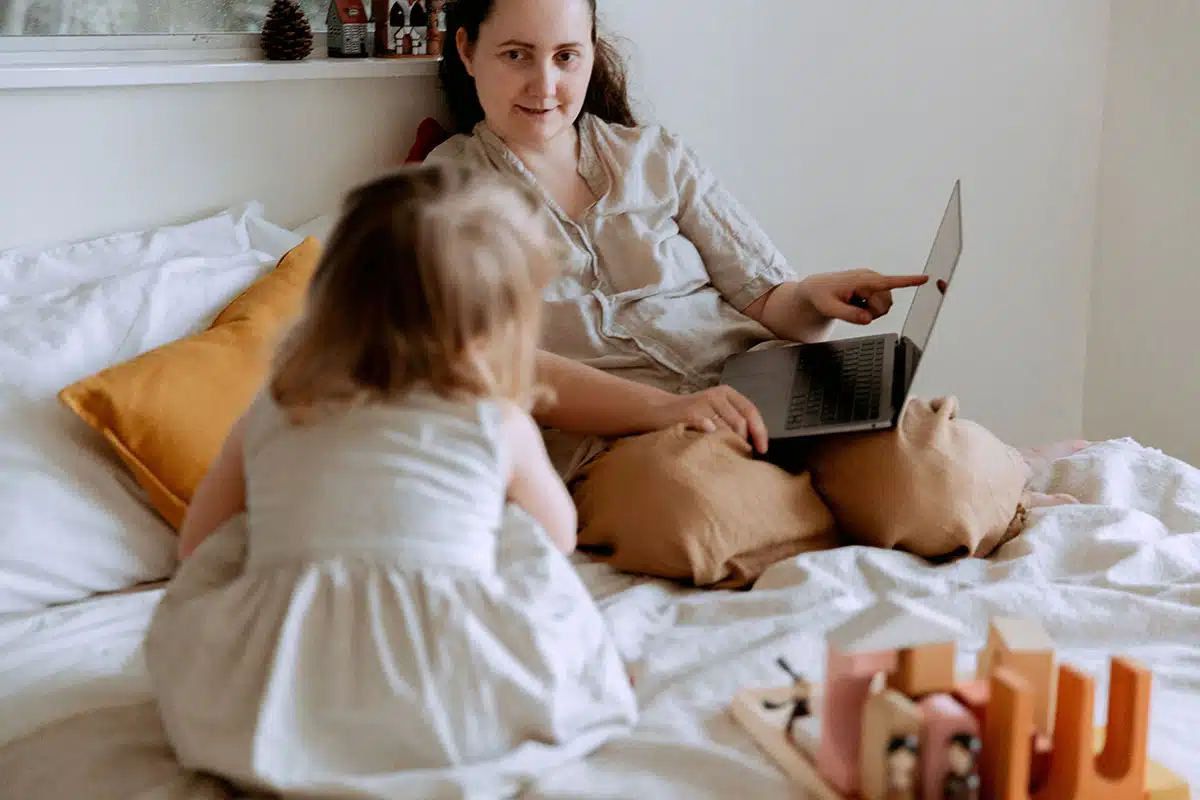Decoding the World of a Child & Adolescent Psychiatrist: What Parents Need to Know
Every child’s mental well-being is of utmost importance, and as parents, we strive to ensure their happiness and emotional health. However, there may be times when our children face challenges that require specialised care. This is where a child psychiatrist plays a crucial role. In this article, we will delve into the world of child psychiatry, exploring what it entails and providing valuable insights for parents seeking guidance. So, let’s unlock the door to understanding and supporting our children’s mental health.
Understanding Child & Adolescent Psychiatrists
Child psychiatrists are highly trained medical professionals who specialise in diagnosing and treating mental, emotional, and behavioural disorders in children and adolescents. They possess the expertise to evaluate and address a wide range of conditions, including attention-deficit/hyperactivity disorder (ADHD), anxiety disorders, depression, autism spectrum disorders, and more. In fact, a study mentioned in an article by Psychology Today, indicates that children with a variety of clinically significant behavioural symptoms (for example, anxiety, depression, or hyperactivity) are at risk of significant functional impairment when they become young adults. Even if these children “grow out of” specific childhood psychiatric syndromes, their abilities to function remain compromised. Thus, clinically significant behavioural symptoms in children and adolescents may be markers of developmental issues that can have serious repercussions for successful functioning as young adults. That’s why it’s very important to track down behavioural challenges as early as adolescence to help children as they grow and develop as individuals.
“Nothing in life is to be feared. It is only to be understood.” – Marie Curie, Polish and naturalised-French Physicist and Chemist
The Role of a Child Psychiatrist
A child psychiatrist plays a multifaceted role in supporting young minds. They conduct thorough assessments, utilising various tools such as interviews, observations, and psychological tests, to form a comprehensive understanding of a child’s mental health. By employing this holistic approach, they can accurately diagnose and develop personalised treatment plans tailored to each child’s unique needs.
Treatment Modalities
Child & adolescent psychiatrists employ a variety of treatment modalities to address mental health concerns in young patients. These may include:
- Psychotherapy
Also known as talk therapy, psychotherapy involves regular sessions where children can openly express their thoughts, emotions, and concerns. Psychotherapy, according to Perpetual Help Medical Center, is a way for people with mental illnesses and emotional difficulties to talk with a psychiatrist, psychologist, or another mental health care provider. Through psychotherapy, you can control or eliminate symptoms, so you can function better, and have better health and healing. It helps you learn about your moods, feelings, thoughts, and behaviours, so you can learn how to take control of your life. Through guided conversations, child psychiatrists help them develop coping strategies, improve communication skills, and manage their emotions effectively.
“Words of comfort, skillfully administered, are the oldest therapy known to man.” – Louis Nizer, American Trial Lawyer (1902-1994)
- Medication Management
In some cases, children may require medication to manage certain mental health conditions. Child psychiatrists are skilled in determining when medication is necessary, prescribing appropriate treatments, and carefully monitoring the effects and potential side effects to ensure optimal outcomes. - Collaborative Care
Child psychiatrists often work collaboratively with other healthcare professionals, including psychologists, therapists, and paediatricians. This collaborative approach ensures a comprehensive treatment plan that addresses all aspects of a child’s well-being.
The Importance of Early Intervention
Early intervention plays a vital role in promoting positive mental health outcomes for children. By seeking the assistance of a children’s psychiatrist at the first signs of concern, parents can provide their child with the necessary support and interventions, minimising the potential long-term impact of mental health challenges. Identifying and addressing issues early on can significantly improve a child’s overall well-being and pave the way for a brighter future.
Choosing a Children’s Psychiatrist
When selecting a children’s psychiatrist, it is essential to consider several factors. Look for professionals who have specific experience in working with children and adolescents, as they possess a deep understanding of the unique developmental stages and challenges faced during this critical period. Additionally, seek psychiatrists who demonstrate empathy, patience, and the ability to establish trust and rapport with young patients.
Supporting Children’s Mental Health
One renowned organisation dedicated to providing specialised mental health services to children and adolescents is Dokotela. With a commitment to serving underserved areas across rural and regional Australia, Dokotela offers a range of mental health services, including child psychiatry, geriatric psychiatry, psychology, and NDIS psychological support services. Their collaborative care model aims to empower general practitioners to deliver skilled care to complex patients, building capacity and fostering connectivity among healthcare providers.
Dokotela‘s experienced panel of psychiatrists brings a wealth of expertise and sub-specialties to ensure high-quality care for young patients. They offer flexible access to face-to-face and telehealth consultations, making mental health support easily accessible across various locations. Furthermore, Dokotela actively collaborates with GPs to enhance their ability to treat and manage severe mental illnesses, promoting a holistic approach to care.
A child psychiatrist can be a beacon of hope for families navigating the complexities of childhood mental health. By seeking their expertise, parents can equip their children with the necessary tools to overcome challenges, thrive, and achieve their full potential. Remember, early intervention and professional guidance are paramount. If you have concerns about your child’s mental well-being, don’t hesitate to reach out to a trusted children’s psychiatrist.
Explore the comprehensive mental health services provided by Dokotela and enquire about their offerings. If you wish to send a referral or seek NDIS support, you can find the relevant links on their website as well. Remember, the well-being of our children is a collective effort, and by prioritising their mental health, we can nurture a brighter future for them.
FAQs
A child psychiatrist is a highly trained medical professional who specialises in diagnosing and treating mental, emotional, and behavioural disorders in children and adolescents. They play a vital role in supporting young minds by conducting thorough assessments, developing personalised treatment plans, and providing therapy or medication management when necessary.
It’s important to seek help from a child psychiatrist if you notice persistent changes in your child’s behaviour, emotions, or social interactions. These may include sudden mood swings, difficulty concentrating, withdrawal from activities, or extreme anxiety. Early intervention can lead to better outcomes, so don’t hesitate to consult a professional if you have concerns about your child’s mental well-being.
A child psychiatrist can help your child by conducting comprehensive evaluations, diagnosing mental health conditions, and developing personalised treatment plans. They may offer psychotherapy, medication management, or a combination of both. Their expertise and guidance can empower your child to develop coping strategies, improve communication skills, and manage their emotions effectively.
Early intervention in children’s mental health can lead to better long-term outcomes. By addressing issues promptly, you can minimise the potential impact of mental health challenges and provide your child with the necessary support and interventions. Early intervention improves the chances of successful treatment and promotes positive overall well-being.
When choosing a psychiatrist for your child, consider their specific experience working with children and adolescents. Look for professionals who demonstrate empathy, patience, and the ability to establish trust with young patients. It’s also important to ensure their expertise aligns with your child’s specific needs. Seeking referrals from trusted sources or consulting with your child’s paediatrician can also be helpful in making an informed decision.
The collaborative care model involves working closely with various healthcare professionals to ensure comprehensive treatment for children with mental health concerns. Child & adolescent psychiatrists often collaborate with psychologists, therapists, and paediatricians to provide holistic care. This collaborative approach fosters better communication, knowledge-sharing, and a more coordinated treatment plan.
Yes, telehealth consultations are available for children’s psychiatric services. Telehealth allows for remote access to mental health professionals, providing convenient and flexible options for families. Dokotela, for example, offers telehealth consultations alongside face-to-face sessions, making mental health support easily accessible across different locations.
You can contact Dokotela and enquire about their services by visiting their website. If you wish to send a referral or seek NDIS support, you can find the relevant links on their website as well. Don’t hesitate to reach out to their experienced panel of psychiatrists for specialised mental health care for your child.












